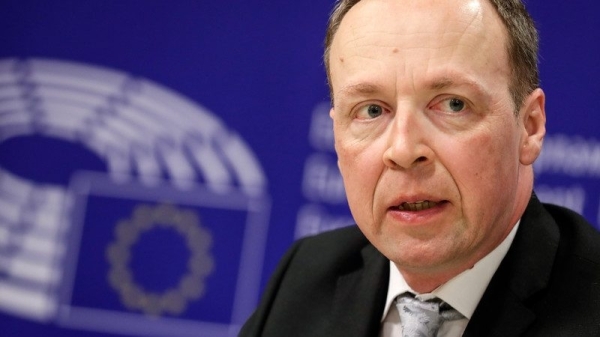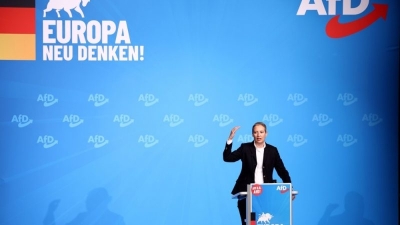YouTube’s algorithm promoted right-wing content in the 2024 Finnish elections

As European Parliamentarians and Commissioners discuss two major texts on artificial intelligence (AI) in Strasbourg this week, a new study found YouTube’s recommendation algorithm boosted right-wing content in the run-up to Finland’s 2024 elections.
Despite recent changes to its recommendation algorithm, Finnish fact-checking service Faktabaari, and CheckFirst, a Helsinki-based company specialising in countering disinformation, working together in the CrossOver project, in their report published today (12 March), found that YouTube “exhibits clear political bias”, favouring right-wing politicians.
Tackling such political bias is a key priority for EU regulators, particularly ahead of June’sEuropean Parliament elections and with nine European countries head to the polls.
The study looked at what YouTube recommends in its “Up Next” category, which suggests the next video to play as well as search recommendations for political terms.
Faktabaari and CheckFirst simulated daily YouTube searches for 77 Finnish words connected to key election topics, gathering data from 10 locations in Finland between 24 January and 11 February 2024.
According to the study, a “prominent effect” of YouTube’s recommendation system is to promote videos related to the Finns Party.
Only 6.4% of videos from search results mention politicians from the right-wing party, whereas 19.3% of the first “Up Next” recommendations relate to it’s politicians.
“During the Finnish elections, our systems surfaced content from authoritative sources and we quickly removed content that violated our policies, regardless of the speaker’s political views,” a YouTube spokesperson told Euractiv via email.
CrossOver receives funding from the European Information and Media Fund, which is in turn funded by Google, YouTube’s parent company.
A single video of Jussi Halla-Aho, leader of the nationalist Finns Party, being the most common first recommendation at 4% of the cases, said the study.
While this “might not seem an impressive figure,” considering that the study analysed over 1.3 million recommended videos, the fact that a single video can be put forward in that proportion is remarkable,” Guillaume Kuster, CEO of CheckFirst, told Euractiv.
The Digital Services Act (DSA), coming fully into effect in February 2024, seeks to improve the transparency of these recommendation algorithms.
The act requires large digital platforms, like Google, to conduct annual assessments of systemic risks, including possible adverse effects on electoral procedures.
However, the two organisations behind the report argue that these risk assessments should be made public or available to independent observers for review.
Read more with Euractiv




